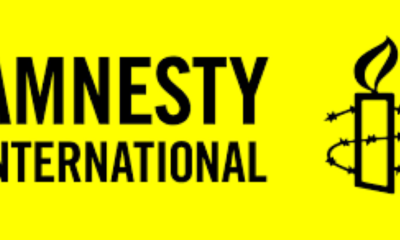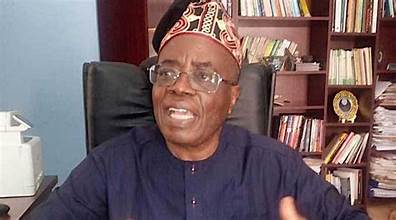Economic Issues
Rot In Delta Line-Uduaghan Bus: Task Before The Next Governor Of Delta State -By Efe Agabi
The failure of government to expand the purview of the networks covered to improve service and engender economic expansion has been theorized in different context. From a political perspective, critiques from the main opposition in the state and fifth columnists have argued that Governor Okowa’s poor disposition to Uduaghan bus is deliberate so as to erase the footprints of the erstwhile governor given the frosty relationship that exists between the two political heavyweights.
At the inception of the administration of Governor Okowa, I did a piece to dissect the template designed by Governor Emmanuel Uduaghan which he labeled “Delta Beyond Oil’ within the propositions of the resource curse theory. To design a beautiful economic template that would liberate Delta from the doldrums of dependence on revenue from Abuja so as to energize other critical sectors of the economy is commendable. But it was meant to fail given the plague of discontinuity in the trajectory of governance which is a post colonial moral burden in Nigeria. You cannot midwife a philosophy months before your handover date in Nigerian politics and expect your successor to adopt it. Some of the programmes and policies of predecessors do not survive the first 100 days in office of the incumbent. Others back with legislation are rendered redundant for obvious reasons. Though not peculiar to Delta state, the deliberate disbandment of policies and programs of predecessors by incumbents is a political culture that has been retrogressive.
The plague of discontinuity is clearly visible in Delta line, called ‘Uduaghan bus’ which is one of the indelible footprints of the previous administration. For the first time in the history of Delta state we had a Governor that recognizes the centrality of transportation planning for overall economic development. If governance is a continuum, Deltans should be worried that the transportation infrastructure and service has assumed an abysmal state with less patronage and poor passengers’ satisfaction. The failure of government to expand the purview of the networks covered to improve service and engender economic expansion has been theorized in different context. From a political perspective, critiques from the main opposition in the state and fifth columnists have argued that Governor Okowa’s poor disposition to Uduaghan bus is deliberate so as to erase the footprints of the erstwhile governor given the frosty relationship that exists between the two political heavyweights. But what are the economic implications of the rot, mismanagement and endemic corruption in the transportation infrastructure?

Tim Cresswell in one of his thesis interrogated the centrality of transportation planning for overall socioeconomic development. Tim, in his theoretical exposition, asserts that the most important need of man after food, shelter and clothing is mobility. This is evident in data from NBS that over 30% of household income is spent on mobility. Ogunleye (2020) argued that transportation planning cannot be insulated from governance as it represents a critical part of economic expansion and urban livability. Similarly, Agheyisi (2021), and Adeola (2020) posits that the domination of the transportation sector by poorly regulated informal commercial outfits has manifested in high cost of mobility, food and poor passengers satisfaction given the fixation on profit making by transport vendors. To this end, it is expedient to interrogate the state of Uduaghan bus which serves as the only medium to access affordable mobility with some level of comfort, safety and satisfaction in Delta state. Few questions that would properly situate the crux of this piece are “what is the current state of Uduaghan bus, have we seen improvement in coverage to sufficiently connect intra and intercity beehives of commercial activities in Delta state? Answers to the rhetoric questions are in the public domain. But one does need any serious empirical evaluation to see the enormous opportunities in the transportation sector. The task before the next governor, possibly of Urhobo extraction is to energize Uduaghan bus, not only with adequate funding, but with proper rejigging of the policy and operational framework to engender accountability as regards accruals to government, and incorporation of experts in the transportation industry for prudent management of state resources. There is the urgent need to map out towns and intra city zones that are economically complimentary for proper allocation of buses to connect emerging towns where transportation poses a major challenge. While this piece would not delve into the implications of high cost of transportation on food prices, it is imperative to draw on the findings of Ogunleye (2020) that government cannot feign oblivion over the correlation between high cost of food and that of rural urban transportation. Thus; it is pertinent to suggest that the visions that midwife Udughan bus should be expanded to bring to fore the mobility need the aged, physically challenged and students. Specific attention should be devoted to reducing the haulage cost of agro products from rural areas to cities as a complimentary effort for the massive road construction across communities in Delta state.










